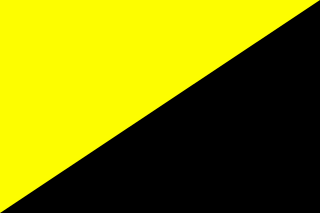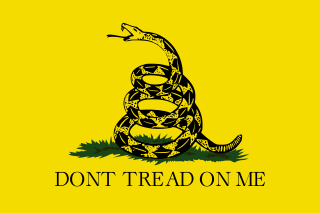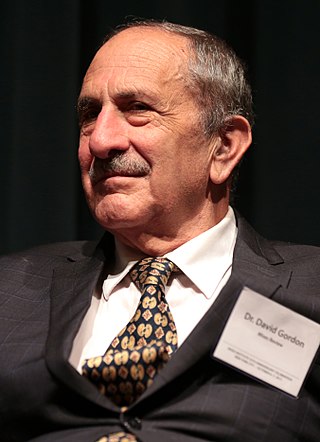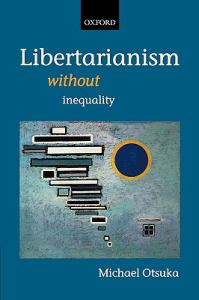
Anarcho-capitalism is an anti-statist, libertarian political philosophy and economic theory that seeks to abolish centralized states in favor of stateless societies with systems of private property enforced by private agencies, based on concepts such as the non-aggression principle, free markets and self-ownership. Anarcho-capitalist philosophy extends the concept of ownership to include control of private property as part of the self, and, in some cases, control of other people as private property. In the absence of statute, anarcho-capitalists hold that society tends to contractually self-regulate and civilize through participation in the free market, which they describe as a voluntary society involving the voluntary exchange of goods and services. In a theoretical anarcho-capitalist society the system of private property would still exist, as it would be enforced by private defense agencies and/or insurance companies selected by property owners, whose ownership rights or claims would be enforced by private defence agencies and/or insurance companies. These agencies or companies would operate competitively in a market and fulfill the roles of courts and the police, similar to a state apparatus. Some anarcho-capitalist authors have argued that slavery is compatible with anarcho-capitalist ideals.
Egalitarianism, or equalitarianism, is a school of thought within political philosophy that builds on the concept of social equality, prioritizing it for all people. Egalitarian doctrines are generally characterized by the idea that all humans are equal in fundamental worth or moral status. As such, all citizens of a state should be accorded equal rights and treatment under the law. Egalitarian doctrines have supported many modern social movements, including the Enlightenment, feminism, civil rights, and international human rights.
Individualism is the moral stance, political philosophy, ideology and social outlook that emphasizes the intrinsic worth of the individual. Individualists promote realizing one's goals and desires, valuing independence and self-reliance, and advocating that the interests of the individual should gain precedence over the state or a social group, while opposing external interference upon one's own interests by society or institutions such as the government. Individualism makes the individual its focus, and so starts "with the fundamental premise that the human individual is of primary importance in the struggle for liberation".

Murray Newton Rothbard was an American economist of the Austrian School, economic historian, political theorist, and activist. Rothbard was a central figure in the 20th-century American libertarian movement, particularly its right-wing strands, and was a founder and leading theoretician of anarcho-capitalism. He wrote over twenty books on political theory, history, economics, and other subjects.
Distributive justice concerns the socially just allocation of resources, goods, opportunity in a society. It is concerned with how to allocate resources fairly among members of a society, taking into account factors such as wealth, income, and social status. Often contrasted with just process, which is concerned with the administration of law, distributive justice concentrates on outcomes. This subject has been given considerable attention in philosophy and the social sciences. Theorists have developed widely different conceptions of distributive justice. These have contributed to debates around the arrangement of social, political and economic institutions to promote the just distribution of benefits and burdens within a society. Most contemporary theories of distributive justice rest on the precondition of material scarcity. From that precondition arises the need for principles to resolve competing interest and claims concerning a just or at least morally preferable distribution of scarce resources.

Hans-Hermann Hoppe is a German-American academic associated with Austrian School economics, anarcho-capitalism, right-wing libertarianism, and opposition to democracy. He is professor emeritus of economics at the University of Nevada, Las Vegas (UNLV), senior fellow of the Mises Institute think tank, and the founder and president of the Property and Freedom Society.

A Theory of Justice is a 1971 work of political philosophy and ethics by the philosopher John Rawls (1921–2002) in which the author attempts to provide a moral theory alternative to utilitarianism and that addresses the problem of distributive justice . The theory uses an updated form of Kantian philosophy and a variant form of conventional social contract theory. Rawls's theory of justice is fully a political theory of justice as opposed to other forms of justice discussed in other disciplines and contexts.

Self-ownership is the concept of property in one's own body, often expressed as the moral or natural right of a person to have bodily integrity meaning the exclusive right to control one's own body including one's life, where 'control' means exerting any physical interference and 'exclusive' means having the right to install and enforce a ban on other people doing this. Since the legal norm of property title claim incapacitates other people from claiming property title over the same resource at the same time, the right to control or interfere with one's own body in any arbitrary way is secured. Anarcho-capitalism defines self-ownership as the exclusive right to control one's body as long as the owner does not aggress upon others, leading to the concept of the sovereign individual. In Minarchism the 'exclusive right' is understood by separating the 'liberty-to' from the 'liberty-from' where for each person the 'liberty-to' is restricted by all the 'liberty's-from' of others, effectively subjecting the 'liberty-to' to the ban on the usage of force. Thereafter self-ownership means the exclusive right to control one's body insofar considering action between inhabitants and not involving the state, making it roughly a pacifist morality only among inhabitants. Self-ownership is a central idea in several political philosophies that emphasize individualism, such as libertarianism and liberalism.

The non-aggression principle (NAP), also called the non-aggression axiom, is the philosophical position that states that any person is permitted to do everything with his property except aggression, defined as the initiation of forceful action, which is in turn defined as 'the application or threat of' 'physical interference or fraud ', any of which without consent. The principle is also called the non-initiation of force. The principle incorporates universal enforceability.
Left-libertarianism, also known as left-wing libertarianism, or social libertarianism, is a political philosophy and type of libertarianism that stresses both individual freedom and social equality. Left-libertarianism represents several related yet distinct approaches to political and social theory. Its classical usage refers to anti-authoritarian varieties of left-wing politics such as anarchism, especially social anarchism, communalism, and libertarian Marxism, collectively termed libertarian socialism. A portion of the left wing of the green movement, including adherents of Murray Bookchin's social ecology, are also generally considered left-libertarian.

The Lockean proviso is a feature of John Locke's labor theory of property which states that whilst individuals have a right to homestead private property from nature by working on it, they can do so only if "there was still enough, and as good left; and more than the yet unprovided could use".
Libertarianism is a political philosophy that upholds liberty as a core value. Libertarians seek to maximize autonomy and political freedom, emphasizing equality before the law and civil rights to freedom of association, freedom of speech, freedom of thought and freedom of choice. Libertarians are often skeptical of or opposed to authority, state power, warfare, militarism and nationalism, but some libertarians diverge on the scope of their opposition to existing economic and political systems. Various schools of libertarian thought offer a range of views regarding the legitimate functions of state and private power. Different categorizations have been used to distinguish various forms of Libertarianism. Scholars distinguish libertarian views on the nature of property and capital, usually along left–right or socialist–capitalist lines. Libertarians of various schools were influenced by liberal ideas.

In the United States, libertarianism is a political philosophy promoting individual liberty. According to common meanings of conservatism and liberalism in the United States, libertarianism has been described as conservative on economic issues and liberal on personal freedom, often associated with a foreign policy of non-interventionism. Broadly, there are four principal traditions within libertarianism, namely the libertarianism that developed in the mid-20th century out of the revival tradition of classical liberalism in the United States after liberalism associated with the New Deal; the libertarianism developed in the 1950s by anarcho-capitalist author Murray Rothbard, who based it on the anti-New Deal Old Right and 19th-century libertarianism and American individualist anarchists such as Benjamin Tucker and Lysander Spooner while rejecting the labor theory of value in favor of Austrian School economics and the subjective theory of value; the libertarianism developed in the 1970s by Robert Nozick and founded in American and European classical liberal traditions; and the libertarianism associated with the Libertarian Party, which was founded in 1971, including politicians such as David Nolan and Ron Paul.
Michael H. Otsuka is an American left-libertarian political philosopher and Professor in the Department of Philosophy at Rutgers University.
Right-libertarianism, also known as libertarian capitalism, or right-wing libertarianism, is a libertarian political philosophy that supports capitalist property rights and defends market distribution of natural resources and private property. The term right-libertarianism is used to distinguish this class of views on the nature of property and capital from left-libertarianism, a type of libertarianism that combines self-ownership with an egalitarian approach to property and income. In contrast to socialist libertarianism, right-libertarianism supports free-market capitalism. Like most forms of libertarianism, it supports civil liberties, especially natural law, negative rights, the non-aggression principle, and a major reversal of the modern welfare state.
Libertarianism is variously defined by sources as there is no general consensus among scholars on the definition nor on how one should use the term as a historical category. Scholars generally agree that libertarianism refers to the group of political philosophies which emphasize freedom, individual liberty and voluntary association. Libertarians generally advocate a society with little or no government power.

David Gordon is an American libertarian philosopher and intellectual historian influenced by Murray Rothbard's views of economics. He is a senior fellow of the Ludwig von Mises Institute, a libertarian think tank, and is editor of The Mises Review.
Gerald Allan Cohen was a Canadian political philosopher who held the positions of Quain Professor of Jurisprudence, University College London and Chichele Professor of Social and Political Theory, All Souls College, Oxford. He was known for his work on Marxism, and later, egalitarianism and distributive justice in normative political philosophy.
Market socialism is a type of economic system involving social ownership of the means of production within the framework of a market economy. Various models for such a system exist, usually involving cooperative enterprises and sometimes a mix that includes public or private enterprises. In contrast to the majority of historic socialist economies, which have substituted the market mechanism for some form of economic planning, market socialists wish to retain the use of supply and demand signals to guide the allocation of capital goods and the means of production. Under such a system, depending on whether socially owned firms are state-owned or operated as worker cooperatives, profits may variously be used to directly remunerate employees, accrue to society at large as the source of public finance, or be distributed amongst the population in a social dividend.

Karl Widerquist is an American political philosopher and economist at Georgetown University on its campus in Qatar. He is best known as an advocate of basic income, but is also an interdisciplinary academic writer who has published in journals in fields as diverse as economics, politics, philosophy, and anthropology. He is a consistent critic of propertarianism, right-libertarianism, social contract theory, and the belief that modern societies fulfill the Lockean proviso.










